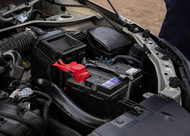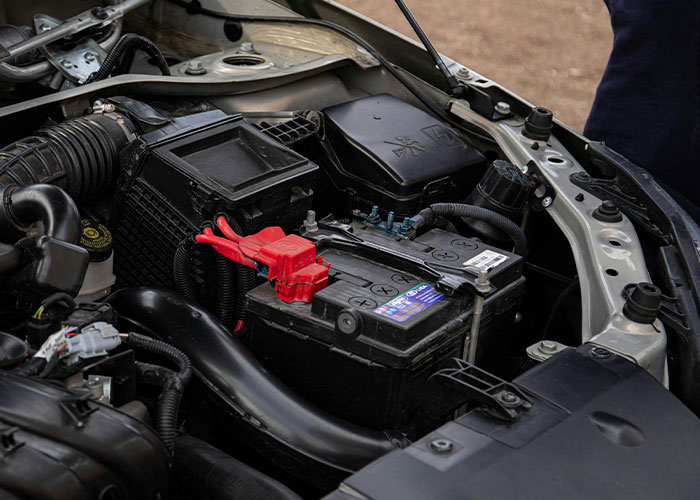How Often To Replace Car Battery?
7th Jun 2024
Maintaining a car's battery is crucial for ensuring reliable vehicle performance. Neglecting your car battery's health can lead to unexpected car breakdowns and costly vehicle repairs. A well-maintained battery ensures that the car starts smoothly and all electrical components function properly.
Ignoring the signs of a failing car battery can significantly impact your vehicle's overall functionality. To avoid such issues, it is important to regularly check and, if necessary, replace car battery components before they deteriorate.
This blog outlines simple steps that can greatly enhance your car's battery efficiency and longevity.
Understanding Car Battery Lifespan
Under normal conditions, the average lifespan of a car battery ranges from three to five years. However, this duration can vary based on several influencing factors. Regular maintenance and timely decisions to replace car battery components can help achieve this lifespan.
Several factors can shorten or extend the lifespan of your car battery. These include the climate, the type of vehicle, and individual usage patterns. Especially in extreme climates, frequent checks are crucial to determine when to replace car battery to avoid sudden failures.
Signs That You Need to Replace Your Car Battery
Do you know what is the right time to replace the car battery? Here are all the possible signs indicating that your car battery is struggling to meet the power demands of your vehicle.
- Slow Engine Crank: When your car takes longer than usual to start, it’s a clear sign that your car battery may be losing its charge.
- Dim Lights and Electrical Issues: If your car's lights are dimmer than normal or if electrical components like the radio or air conditioning are malfunctioning, it might be time to replace car battery.
- Check Engine Light: The appearance of the check engine light can sometimes be related to car battery power issues.
- Age of Battery: If your car battery is older than three to five years, it could be nearing the end of its typical lifespan, suggesting a replacement might be necessary soon.
- Corrosion on Battery Terminals: A white, ashy substance on the metal parts of your car battery is a sign of corrosion, which can lead to poor battery performance.
Read More: How To Remove Car Battery Corrosion?
- Swelling Battery Case: A car battery case that appears swollen or bloated is a symptom of excessive heat exposure, which can dramatically shorten your battery's lifespan.
- Headlight Test: At night, check if the brightness of your car's headlights increases when revving the engine. If there is a noticeable change, your car battery may be failing to supply adequate power at idle.
Each of these signs can indicate that it's time to replace car battery to maintain your vehicle’s performance and safety.
How Often To Replace Car Battery?
The general recommendation is to replace the car battery every three to five years, but this can vary depending on the vehicle and battery type. Factors such as driving habits and climate can shorten or extend this timeframe, making regular car battery checks essential. Staying proactive with car battery maintenance helps avoid unexpected failures.
To ensure your vehicle remains reliable, it’s wise to monitor your car battery's performance as it ages. If you notice any decline in performance or if the car battery reaches the upper limit of the recommended replacement period, it's time to replace the car battery. Doing so can prevent larger issues and keep your vehicle running smoothly.
How to remove a car battery?
To remove a car battery, first ensure the car engine is off and the keys are not in the ignition. Locate the car battery, usually in the engine bay, and disconnect the negative (-) cable first to avoid electrical shorts. This cable is typically black or marked with a minus sign.
Next, remove the positive (+) cable, which is usually red. After both cables are disconnected, unscrew any brackets or clamps securing the car battery. Carefully lift the car battery out of the engine bay, keeping it upright to prevent any acid spillage.
FAQs
1. Can a car battery die while driving?
Yes, A car battery can die while driving, typically due to a failing car alternator that cannot charge the battery or due to extreme electrical demands from the vehicle's systems. This can lead to sudden loss of power and vehicle shutdown.
2. Can a car battery recharge itself?
No, a car battery cannot recharge itself independently. It requires a car alternator, which generates electricity while the engine runs, to recharge it. Without the alternator's input, the car battery will eventually drain.
3. What car battery does my car need?
To determine the specific car battery your vehicle needs, refer to your vehicle’s owner manual for the correct type and size. You can also check the label on your current car battery or consult with a professional at an auto parts store.
4. How much does it cost to replace a car battery?
The cost to replace a car battery varies, typically ranging from $50 to $200, depending on the car battery type and vehicle model. Premium car batteries and installation fees can increase the total cost.
Shop With JB Tools For Easy Car Battery Replacement
For those looking to replace car battery with ease, JB Tools offers high-quality car battery replacement tools that make the process straightforward and efficient. Our selection includes everything from wrenches to car battery testers, all designed to ensure a smooth replacement experience.
At JB Tools, we provide durable and reliable car battery tools that are perfect for both professionals and DIY enthusiasts. When it's time to replace the car battery, count on JB Tools for all your car battery equipment needs.




